Department News
Melkani Joins Faculty in Division of Molecular & Cellular Pathology
 The Department is excited to welcome Dr. Girish Melkani as associate professor in the Division of Molecular & Cellular Pathology, effective October 1.
The Department is excited to welcome Dr. Girish Melkani as associate professor in the Division of Molecular & Cellular Pathology, effective October 1.
Dr. Melkani comes to UAB from San Diego State University, where he did his postdoctoral studies, followed by his faculty tenure. His research focuses on disruptions of circadian rhythms associated with cardiometabolic, muscular, and sleep disorders that are hallmarks of many genetic, metabolic, and aging diseases. His lab has been at the forefront of developing and using clinically-relevant genetic models of human systemic metabolic abnormalities, cardiometabolic disease, myopathies, neuropathies, and aging using pathophysiological, cell-molecular, genetics, and nutritional approaches. His lab research findings have been published in high-impact research journals, including Science, Nature Communications, Aging Cell, eLife, Human Molecular Genetics, and PLoS Genetics.
Read moreMCP Faculty Graduate Students Garner Awards
 Graduate students in the labs of two faculty members in the Division of Molecular & Cellular Pathology recently celebrated dissertation defenses, publications, and grant awards.
Graduate students in the labs of two faculty members in the Division of Molecular & Cellular Pathology recently celebrated dissertation defenses, publications, and grant awards.
Jennifer Valcin, PhD, successfully defended her doctoral dissertation titled, “Circadian Clock and Lipid Metabolism Disruption in Fatty Liver Disease” on July 17, 2020, and graduated August 2020. Dr. Valcin was a student in the UAB GBS Genetics, Genomics, and Bioinformatics Theme mentored by Dr. Shannon Bailey, Professor, in the Division of Molecular and Cellular Pathology.
Read moreGenomic Diagnostics and Bioinformatics Expands Testing with GenomOncology
The Division of Genomic Diagnostics and Bioinformatics has selected GenomOncology's Pathology Workbench and GenomAnalytics to help scale their molecular pathology lab's test volume and analysis, according to a press release on Thursday, September 29, 2020.
![]()
The division, led by director Alexander "Craig" Mackinnon, Jr., MD, PhD, intends to expand testing within the lab, as well as reduce the turnaround time from NGS sample to report by over 80%. Dr. Mackinnon's strategy is to impact patient care by dramatically improving the analytical capabilities of the lab.
GenomOncology's Pathology Workbench will help UAB scale their test volume due to the simplified workflow for variant analysis and comprehensive support for panels. In addition, the streamlined workflow will allow pathologists to return final reports to oncologists with reduced turnaround time. UAB is also using GenomAnalytics' cohort analysis capabilities to combine genomic and molecular data into one, comprehensive view. UAB will leverage the data visualization capabilities of GenomAnalytics for treatment and outcome analysis.
"The collaboration with the GenomOncology team and the overall flexibility of GenomOncology's solutions enables integration with the workflows of the UAB lab. This integration streamlines the variant review and analysis process, improving the turnaround time from NGS sample to report," said Craig Mackinnon, MD, PhD, Director of Genomics Diagnostics and Bioinformatics at UAB.
Diversity Dialogue: Dr. Marisa Marques
 Marisa Marques, MD, is Professor and Interim Division Director of Laboratory Medicine and co-chair of the Department of Pathology's Diversity Task Force. This group meets monthly and includes representatives from around the department, including faculty, staff, and trainees. Here, Dr. Marques shares her personal story of diversity.
Marisa Marques, MD, is Professor and Interim Division Director of Laboratory Medicine and co-chair of the Department of Pathology's Diversity Task Force. This group meets monthly and includes representatives from around the department, including faculty, staff, and trainees. Here, Dr. Marques shares her personal story of diversity.
Are you a graduate of an international medical school (IMG)? Are you a parent? A significant other? A resident? Embarking on an academic career? Many years ago, I also identified with those labels (and some of them, still do). I still remember vividly how it felt to be at those milestones, and I would love to share with you some heartfelt advice.
Read moreMarques Joins FDA Blood Products Advisory Committee
Dr. Marisa Marques, M.D., Interim Division Director, Laboratory Medicine, has been nominated to join the FDA's Blood Products Advisory Commitee (BPAC), which reviews and evaluates data concerning the safety, effectiveness, and appropriate use of blood, products derived from blood and serum or biotechnology which are intended for use in the diagnosis, prevention, or treatment of human diseases, and, as required, any other product for which the Food and Drug Administration has regulatory responsibility, and advises the Commissioner of Food and Drugs of its findings.
The Committee consists of a core of 17 voting members including the Chair. The core of the voting members may include one technically qualified member who is identified with consumer interest. In addition to the voting members, the Committee may include one nonvoting member who is identified with industry interest. Dr. Marques will serve a three-four year term.
Residency Program Announces Leadership Changes, Virtual Tour Video
The Department of Pathology is pleased to announce some exciting changes to the leadership team for our Department’s Residency programs, directed by Dr. James “Rob” Hackney, Associate Professor, Neuropathology, since 2015.

Dr. Brandi McCleskey, assistant professor, Forensics, will join Dr. Hackney as co-director of the proram, effective October 1, 2020.

Could NET-wielding neutrophils be driving respiratory distress and death in COVID-19 patients?
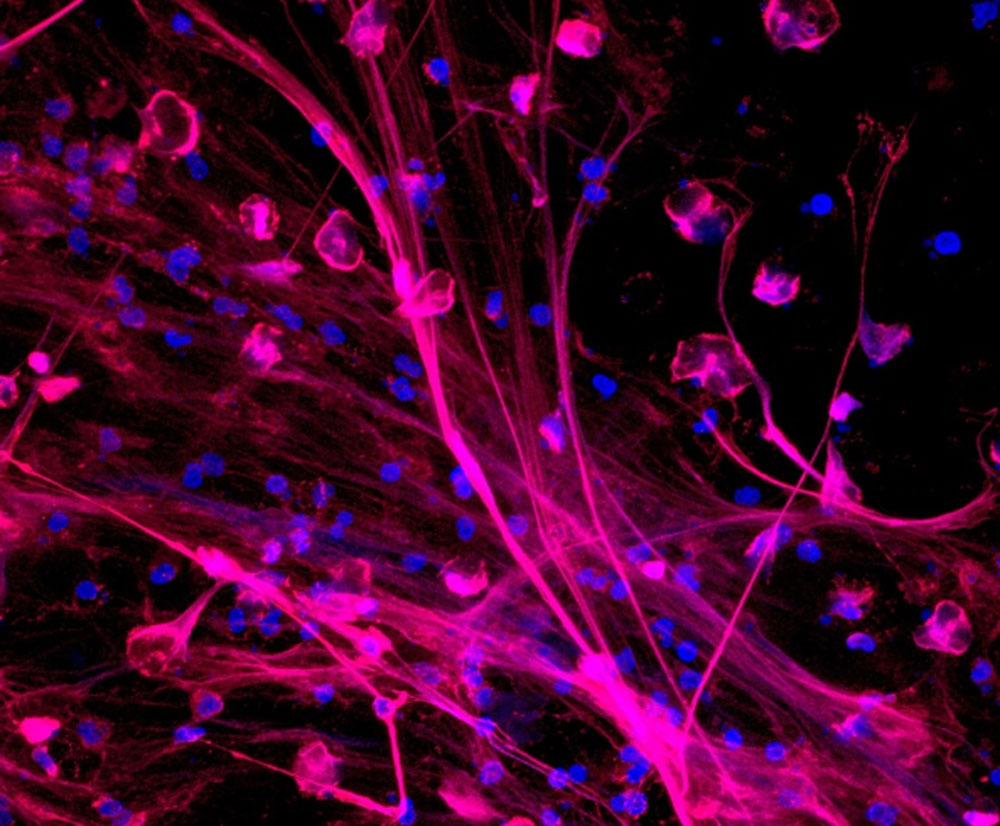 Neutrophils releasing neutrophil extracellular traps (NETs). NETs are stained to visualize neutrophil myeloperoxidase (red) and DNA (blue). Image courtesy Zdenek Hel, Ph.D.It is the stuff of nightmares. Patients suffering from acute respiratory distress syndrome (ARDS) during COVID-19 say it felt like “I was gasping my last breath“ and “as if somebody had taken a scuba diving tank while I'm underwater and turned it off completely.”
Neutrophils releasing neutrophil extracellular traps (NETs). NETs are stained to visualize neutrophil myeloperoxidase (red) and DNA (blue). Image courtesy Zdenek Hel, Ph.D.It is the stuff of nightmares. Patients suffering from acute respiratory distress syndrome (ARDS) during COVID-19 say it felt like “I was gasping my last breath“ and “as if somebody had taken a scuba diving tank while I'm underwater and turned it off completely.”
Diana Lin, MD, Collaborates on Research on COVID Impact to Stroke Patients
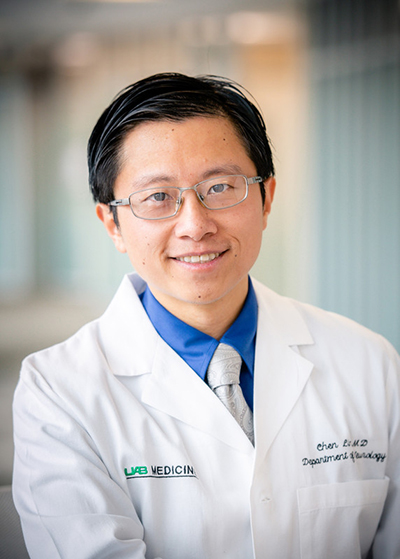 Chen Lin, M.D., assistant professor in the UAB Department of NeurologyStroke patients who also have COVID-19 showed increased systemic inflammation, a more serious stroke severity and a much higher rate of death, compared to stroke patients who did not have COVID-19, according to University of Alabama at Birmingham research led by Chen Lin, M.D., an assistant professor in the UAB Department of Neurology.
Chen Lin, M.D., assistant professor in the UAB Department of NeurologyStroke patients who also have COVID-19 showed increased systemic inflammation, a more serious stroke severity and a much higher rate of death, compared to stroke patients who did not have COVID-19, according to University of Alabama at Birmingham research led by Chen Lin, M.D., an assistant professor in the UAB Department of Neurology.
Dr. Ahn Secures R01 to Study Glioblastoma Multiforme
Erin Eun-Young Ahn, Ph.D., Associate Professor, Molecular and Cellular Pathology, was recently awarded an R01 from the National Cancer Institute based on her project submission, titled, "SON-mediated RNA splicing in glioblastoma." The award began July 1, 2020 and will run through May 30, 2021. The project is expected to run through May 30, 2025.

Five Faculty Awarded Promotion and Tenure in 2020
The Department of Pathology is honored to announce the promotion and tenure of five of our esteemed faculty colleagues for 2020, effective October 1, 2020:

Shuko Harada, M.D., Genomic Diagnostics & Bioinformatics -- Promotion to Professor with Award of Tenure
Dr. Harada is the Section head of the Molecular Diagnostics Section and former Interim Director of the Division of Genomic Diagnostics & Bioinformatics. She has particular interests in precision medicine in oncology and pharmacogenomics, and is a member of the Precision Medicine Institute and the O’Neal Comprehensive Cancer Center.
Should you get COVID antibody testing? And what do the results mean? UAB experts respond.
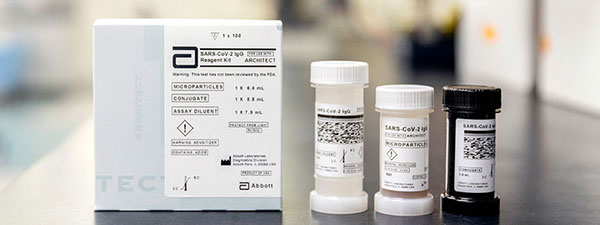 UAB is using the Architect antibody test from Abbott. Image courtesy Abbott.Have I had COVID-19?
UAB is using the Architect antibody test from Abbott. Image courtesy Abbott.Have I had COVID-19?
That is one of the biggest questions in the world right now, and many people are looking to COVID-19 antibody tests for the answer. These blood tests search for the presence of antibodies against SARS-CoV-2, the virus that causes COVID-19. The tests expose a person’s blood to (inactive) pieces of SARS-CoV-2. Antibodies are highly specific; if a person’s blood contains antibodies that bind to SARS-CoV-2, that person has probably been infected sometime in the past two weeks to several months.
Read moreLeading the Charge: UAB’s vital role in Alabama’s COVID-19 pandemic response
COVID-19 has affected virtually every facet of life in Alabama, and since the crisis began, the University of Alabama at Birmingham (UAB) has been leveraging its expertise to fill a critical leadership role in response to the pandemic.
“The COVID-19 pandemic has showcased the vital importance of UAB to Alabama and the world,” says UAB President Ray Watts, M.D. “We continue to leverage research and innovation, community service, patient care, and education to make a big difference.”
Read moreHow can UAB test 200,000 college students for COVID-19 in four weeks?
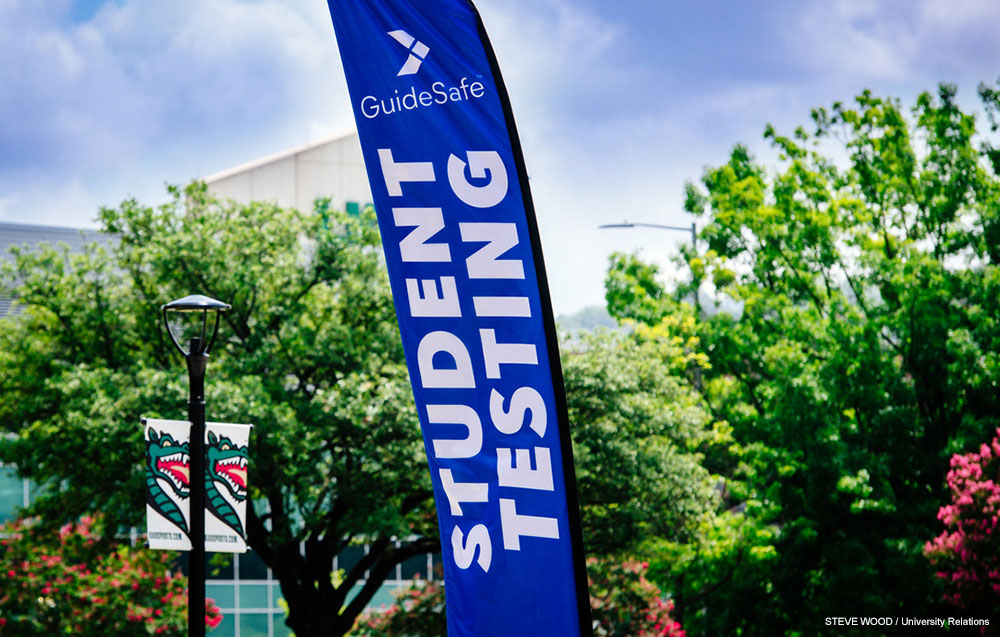
The sheer scale of the GuideSafe Entry Testing initiative is staggering. Part of the multi-tool GuideSafe platform — a partnership between UAB and the Alabama Department of Public Health that has received more than $30 million in CARES Act funding from Gov. Kay Ivey — Alabama’s GuideSafe Entry Testing is the largest higher-education testing initiative in the nation.
Read moreSeptember is Women in Medicine Month
UAB Pathology Celebrates its First Female Division Director, Cristina Magi-Galluzzi, M.D., Ph.D.
September is Women in Medicine month—the perfect time to recognize the first female division director of the Department of Pathology, Cristina Magi-Galluzzi, M.D., Ph.D.
Four New Faculty Join UAB Pathology September 1
The Department of Pathology is excited to welcome four new faculty as assistant professors on September 1. Please welcome to UAB Pathology:

Read more
Dr. Faye-Petersen Earns Emeritus Status
Congratulations to Ona Faye-Petersen, M.D., on earning emeritus status as professor, Anatomic Pathology.
Faye-Petersen began as a full-time practicing pediatric pathologist in 1987 and has been an asset to UAB's Department of Pathology since then. She retired from teaching in the spring of 2019, but continues to keep clinical hours, at UAB Hospital.
Read moreWilliam Grizzle, M.D., Ph.D., Honored as Professor Emeritus
Congratulations to William Grizzle, M.D., Ph.D., on earning emeritus status as professor, Anatomic Pathology.
Dr. Grizzle was named professor emeritus of pathology in the School of Medicine. Grizzle joined the UAB faculty in 1981 and retired in January 2020 as professor of pathology and surgery. He directed the Tissue Collection and Banking Facility from 1983 to 2019, including the Southern Division of the Cooperative Human Tissue Network from 1987 to 2019, and led the UAB-VA Autopsy Service from 1990-2000, among other leadership positions. His research focused on understanding the molecular features of epithelial cancers such as prostate, pancreas, mammary, colorectal and ovarian adenocarcinomas and oral, esophageal, lung, cervical and skin squamous cell lesions to identify biomarkers associated either with early pre-invasive neoplastic lesions or with advanced stage malignant lesions.

Ponnazhagan Named Co-Director of Graduate Program P3
The Department of Pathology’s Selvarangan Ponnazhagan, Ph.D., Professor, Molecular and Cellular Pathology, has been named Co-Director of P3, a graduate program theme known as Pathobiology, Pharmacology, and Physiology. This is one of the eight themes of the UAB Graduate Biomedical Sciences (GBS) Doctoral Training Program. Ponnazhagan will serve alongside Robert C. van Waardenburg, Ph.D., Associate Professor, Department of Pharmacology and Toxicology.

Drs. Chatham, Wende Secure R21 to Study How O-GlcNAc Regulates Function of Healthy Heart
John C. Chatham, Ph.D., Professor, and Adam R. Wende, Ph.D., Associate Professor, in the Division of Molecular and Cellular Pathology, have been awarded a two-year, R21 grant from the National Heart, Lung and Blood Institute (NHLBI) to study the role of protein O-linked N-Acetylglucosamine in regulating cardiac physiology.
All proteins are modified in different ways and alter cell function. The most common modification is phosphorylation. The modification the team studies, O-linked N-Acetylglucosamine – O-GlcNAc for short – is a little different in that it is based on the metabolism of glucose. It was identified in the mid-1980s but research on it has been slow to evolve.
The team responded to a program announcement from NHLBI that focused on studying the normal or healthy functioning of human cells and organs critical to the heart and lung, and studies that may reveal the basis of resilience. “The opportunity was high-risk and high-reward,” Chatham says.
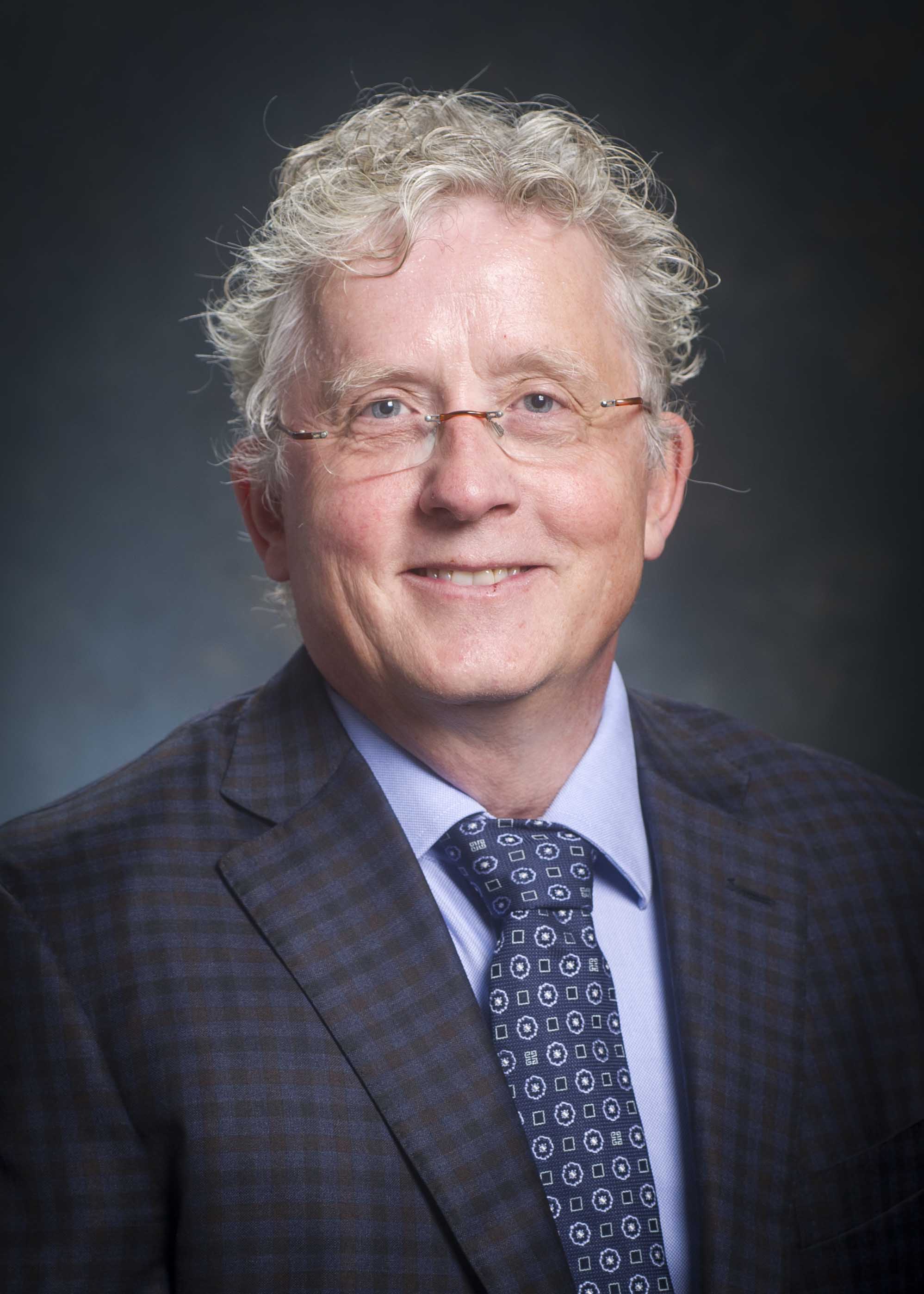 Dr. John Chatham, Professor, Molecular and Cellular Pathology
Dr. John Chatham, Professor, Molecular and Cellular Pathology
Read more
Division of Lab Medicine Welcomes New Faculty Dr. John Choi, Professor
The UAB Department of Pathology is excited to announce the addition of John Choi, M.D., Ph.D., as professor, Division of Laboratory Medicine, led by interim director Marisa Marques, M.D. Choi comes to UAB from St. Jude Children’s Research Hospital Pathology Department in Memphis, Tennessee, where he was an associate member and director, Hematopathology, Hematology, Immunopathology and Special Hematopathology.

Dr. Choi completed his residency in Anatomic Pathology and a fellowship in hematopathology at the Hospital of the University of Pennsylvania. Upon completion, he joined the Department of Pathology at the Hospital of University of Pennsylvania as a hematopathologist. After three years, he was recruited and moved 100 yards to establish a pediatric hematopathology program at the Children’s Hospital of Philadelphia. After 10 years and successfully building a highly regarded pediatric hematopathology service, Dr. Choi was recruited and moved to St. Jude Children’s Research Hospital in Memphis, Tennessee, where he maintained a top pediatric hematopathology service and established clinical flow-based minimal residual disease (MRD) assays for national acute lymphoblastic leukemia (ALL) and acute myeloid leukemia (AML) protocols. After 9 years, he was recruited to UAB.
Dr. Choi has published over 100 peer reviewed articles and 12 book chapters with two main research focuses. One is clinically based and applies new approaches to diagnose difficult pathologic entities. The other is more bench science based and focuses on increasing our understanding of the transcription factor TCF3 and its relationship to normal and leukemic B cell development. He has two patents and has been involved in several clinical trials on oncology related drug research throughout his career. His teaching and lecturing resume is extensive.